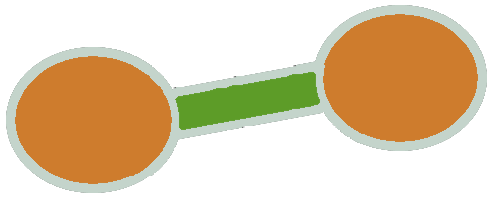Ninatoka
 concept
conceptMSH
Melanocyte-stimulating hormone (MSH) has putative adaptive significance in all forms of species where it is present. In mammals the polypeptide chain influences learning, memory and attention. Chemically MSH shares the first 13 (alpha-MSH) or the first 18 or 22 (beta-MSH) amino acids with adrenocorticotropic hormone (ACTH), even though the mechanisms of secretion and behavioral effects are often quite different. The still shorter peptide chain MSH/ACH4-10 demonstrates significant melanotropic and behavioral actions of alpha-MSH without showing any steroidogenic effect. Behaviorally, alpha-MSH and MSH/ACTH analogues (MSH/ACTH4-9 and MSH/ACTH4-10 influence the parameters of learning, attention and memory in both human and infrahuman subjects. Alpha-MSH has also been reported to increase sensitivity and augment arousal mechanisms in the CNS. Alpha-MSH has been observed to increase and sustain novelty-induced defecation, and this behavior was found to be accompanied by a concomitant decrease in whole brain DA and NE levels in both intact and hypophysectomized rats exposed daily to a test box. The behavioral effects of alpha-MSH may be partially modulated by the enhanced cyclic-AMP activity in the CNS observed after MSH administration. MSH also seems to be working in conjunction with the hypothalamic tripeptide MIF-1 and the pineal hormone melatonin, both of which can affect the release of MSH from the pituitary. Recent evidence suggests that MSH is counterbalancing against and complementing with the effects of endorphins, specifically beta-endorphin (61-91 chain of beta-LPH), in maintaining learning and attentive behaviors.
Ref:
Datta PC, King MG. Alpha-melanocyte-stimulating hormone and behavior. Neurosci Biobehav Rev. 1982 Fall;6(3):297-310. doi: 10.1016/0149-7634(82)90042-2. PMID: 6294567.
Join Ninatoka!!
NinatoKa's goal is to support you as a therapist in unravelling the illness pathway from symptoms to cause, and to help you detect potential interventions.
Go to Explore to start your discovery!
Go to Learn to scroll through newly added data.
Go to Contribute to contribute to the Ninatoka database.
You can rate content up or down and add comments if you agree or disagree.



